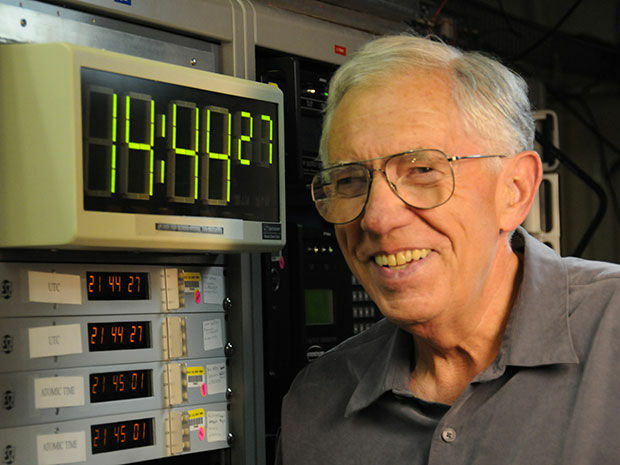Scientists: Earth’s spinning faster

Scientists warn of a peculiar predicament: Earth’s rotation is hurtling towards a potential adjustment, offsetting the delicate dance of seconds, minutes, and hours as we know them.
Duncan Agnew, lead author of the study and a distinguished geophysicist hailing from the hallowed halls of the Scripps Institution of Oceanography at the University of California, San Diego provided insight into the phenomenon.
“Never before have we faced such a conundrum. It’s a small shift, but it speaks volumes about the unusual times we find ourselves in.”
The genesis of this temporal tempest traces back to the polar realms, where the relentless retreat of ice has acted as a counterbalance to Earth’s hastened rotation, staving off the inevitable recalibration of our global timekeeping apparatus.
Dennis McCarthy from the US Naval Observatory added to the discussion.
“We’re hurtling towards a negative leap second. It’s not a matter of if, but when.”
The crux of the issue lies in the dichotomy between astronomical time, governed by the celestial ballet of the heavens, and atomic time, a relentless metronome of precision unfazed by earthly tides.
This dissonance, born of the advent of atomic clocks over half a century ago, has fostered a creeping discrepancy, culminating in the necessity for leap seconds to realign our temporal frameworks.
Yet, as Earth’s molten core churns with unpredictable fervour, orchestrating a clandestine symphony of eddies and flows, the rules of time hang precariously in the balance. Rapid ice melt, a consequence of our changing climate, has masked the core’s influence, delaying the inevitable reckoning by a scant few years.
In the realm of technology, the spectre of leap seconds looms large, posing a thorny dilemma for computer systems ill-equipped to grapple with temporal nuances, reported The Nation.
The fallout from mishandled leap seconds in 2012 served as a stark reminder of the fragility of our digital infrastructure in the face of temporal perturbations.
Latest Thailand News
Follow The Thaiger on Google News:


























